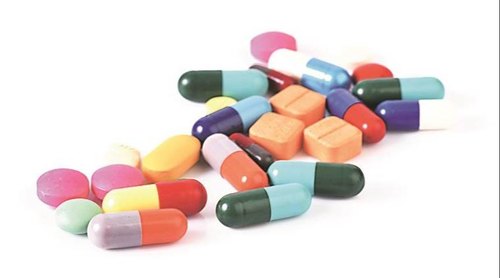The global CRAMS segment is expected to clock 6.2% CAGR over CY21-26E to touch US $ 170 billion

While companies with a large US generics exposure are looking at niche opportunities like Complex Generics/Specialty drugs, Contract Research and Manufacturing Services (CRAMS) for API/Formulation has emerged as a successful opportunity for companies with a sound technical, manufacturing, and regulatory expertise, according to the Healthcare report released by the brokerage house Motilal Oswal.
Second, the branded domestic formulation space remains a high return ratio segment, with moderation in growth, excluding Covid-19, due to the reduced burden of acute diseases. The research report indicates that Divi Labs, Gland Pharma, Sun Pharmaceuticals and Laurus Labs are suitably positioned in this framework for a superior business trajectory.
Two companies Divi and Gland are expected to outperform in the Contract Development and Manufacturing Organization (CDMO) space. The report also suggests that Sun Pharmaceuticals will turn the tide in US sales with its speciality business, albeit with a longer gestation period. They expect Laurus Labs to outperform the industry in APIs and Formulations in the near term, with Biologics/Fermentation CDMOs acting as a key trigger over the next 3-5 years.
The report highlights the prospects of the CRAMS segment as it has emerged as a niche segment, offering high growth potential. The global CRAMS segment is expected to clock 6.2% CAGR over CY21-26E to touch US $ 170 billion. Biologics-based CRAMS is expected to witness 11% CAGR over CY20-26E, led by an ever-rising number of products under development for targeted action and limited manufacturing skill set of respective companies. With 6,000 molecules in the pipeline, ‘small molecules’ constitute a dominant share within the CRAMS segment.
With the ease of access to capital for emerging pharma companies, there is a surge in Biopharma companies focusing on R&D and outsourcing manufacturing at the research/commercial level. This, along with the cost-consciousness of larger pharma companies, is providing a fillip to this segment. Indian CRAMS players are uniquely positioned to outperform the industry in this segment.
On the prospects of the US generics business the report said that after-sales declined to the US $ 56 billion in CY19 from US $ 66 billion in CY16, the generics industry in the US clocked a steady YoY growth in CY20. The improved launch pace was sufficient enough to counter the price erosion in the base business. However, the annual pace of filings has slowed to ~800/230 in FY21/4MFY22 from more than 1,000 in FY17. This is partly due to increased filings for complex products and Covid-related hurdles. Indian companies are working on different strategies such as building Complex Generics, NCEs (New Chemical Entity), and branded Generics, or in-licensing/partnering to augment capabilities.
Most potential products are spread over the development/approval stage and are sometimes away from commercialization. This has made companies vulnerable to higher competition in their base business, the result of which manifested in a sequential sales decline of 5% in Q1FY22. The Motilal Oswal report indicates that the US sales will be under pressure over the near to medium term.
On the Domestic Formulation (DF) business, excluding Covid-19 related therapies, the DF market showed remarkable (12.8% YoY) growth on a MAT basis in Jul’21 after exhibiting a downtrend in growth from Jul’15 to Jul’20. This is due to a spike in the consumption of Covid-19 related medicines. The enhanced usage of digital tools has started transforming marketing in the DF segment.
The product launch pace was elevated with Anti-infectives (17), Cardiac (11), Anti-Neoplastics (9), and Anti-Diabetic (9) witnessing the highest number of launches over the past 12 months. While the Covid-19 related offtake is subsiding with lower cases some expect core therapies to revive gradually going forward.
On the subject of supply disruption and Complex APIs which are the key levers of growth in API, the report said, the global API sales are expected to exhibit 6% CAGR over CY21-26E to touch US $ 259 billion (v/s 3.6% CAGR witnessed over CY18-20), given the rising prevalence of chronic disorders and growing development trend in innovative therapeutic drugs. In addition to increasing demand and re-consideration of the API source by formulators, the shutdown of API factories in China is expected to drive better business opportunities for Indian API companies. As a result, the Indian API sector is expected to outperform other countries, with an estimated CAGR of 9.6% over CY21-26E. The focus on Complex Formulations/Generics by Innovators/Generic companies is expected to drive faster growth for Complex APIs, at 9.3% CAGR over CY21-26E, and is expected to account for 62% of global API sales in CY26E.

Subscribe To Our Newsletter & Stay Updated